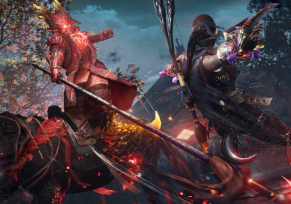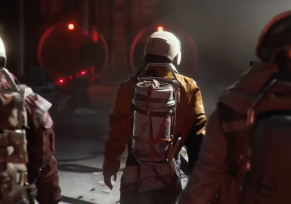"Gears of War: Judgment" was destined to be something different than the primary "Gears of War" trilogy. Aside from the being the fourth game in the series and a prequel, it's the first game made by a studio other than Epic Games. Handing the reigns to "Bulletstorm" developer People Can Fly, "Judgment" is an attempt to both inject some new and exciting mechanics into a franchise three-games deep and squeeze out one more "Gears" game before the jump to next-gen later this year.
Now that the reviews are in it seems that "Gears of War: Judgment" has found a way to awkwardly straddle the line between sequel and reimagining. Depending on who you talk to, what they came up with is either an interesting diversion from "Gears'" familiar path, or an unfortunate mutation on the formula that fails to make an impression. Pretty much everyone agrees on one thing, though: "Gears of War: Judgment" is not "Gears of War 4," or "Gears of War 0": It's a side-story and it doesn't try to outmatch the juggernaut of the franchise it was born from.
"Gears of War: Judgment" embraces the arcade-style aspects of "Gears of War 3," promoting them from background incentive to primary game mechanic. The elements often reserved for driving multiplayer-Technical skill, leaderboard competition, and demanding challange-deeply integrated into the single player campaign. Like technical action games, "Judgment" rates players' performance using a "star system," where players earn points for doing everything from completing levels to kills to effective turret placement. Awarding the game an 8 out of 10, Eurogamer reviewer Dan Whitehead called the technique refreshing compared to experience-based progression systems that simple reward players for sinking time into the game:
"Even more refreshing: those stars don't really matter, which is to say that they matter very much. Leveling up in 'Judgment' doesn't unlock better weapons or new abilities. Whether playing solo, co-op or versus, there's no tangible advantage to be gained from grinding."
In addition to rewards for accomplishments like headshots and chainsaw-kills, "Judgment" encourages players to amp up the challange with "declassified" missions, optional challanges that, triggered, add new conditions to make battles more difficult. The narrative explanation for these-declassified missions reveal how the game's events "really happened"-and the game's emphasis on score and challange make these optional challanges feel like the way the game is meant to be played. VentureBeat's Rus McLaughlin, whose 70 out of 100 score seemed less than enthusiastic, felt "declassified missions" were essential: "I cannot stress enough how much activating Declassifieds improves 'Judgment.' They finally kick the game and the gamer out of their comfort zones."
At the same time Kotaku's Patricia Hernandez, who reccomends players hold off on buying the game, laments that People Can Fly doesn't use the "unreliable narrator" conceit as anything more than an explanation for the game's divergent mission parameters: "'Gears of War' never really capitalizes on its framework. That's a shame, as it's the thing that makes the title unique, at least in the campaign, amongst other entries in the franchise."
Speaking of story, "Judgment's" seems to fall flat. Judgment, which follows "Gears" supporting character Damon Baird, now the head of his own squad, during the Locust invasion. Many reviewers consider the story to fall short, even by series's fairly low standards. Giant Bomb's Jeff Gerstmann gave the game three stars, stating that characters just don't seem as interesting: "Throughout both campaigns, the characters seem a little subdued when compared to the proper Gears trilogy. There are fewer "woo!" moments out of Cole and less machine fixing and complaining out of Baird."
That said, the game is also relies less on the narrative to keep players invested. GamesRadar's Hollander Cooper gave the game four stars, noting that most players won't be bothered, even when the story doesn't line up with facts from past "Gears of War" games: "Though some elements of the story don't really fit in with the timeline... the questionable choices were made in the name of gameplay variety. Odds are you won't mind continuity bumps on your roller coaster ride through Sera."
On the multiplayer front, "Judgnment ditches the old to make way for the new, and many reviewers did not approve of the decision. "Judgment" drops the series' trendsetting "Horde" mode in favor of Overrun, a competitive mode where one group of players play as humans, who can build "Horde"-style defenses, and the other plays as the Locust who have to destroy them. Polygon's Arthur Gies says there's nothing wrong with Overrun, but felt it doesn't replace Horde, as it lacks the depth and addictive qualities that made 'Gears'' signature multiplayer so compelling:
"Overrun works well enough, but it doesn't have the depth or, I suspect, the legs of Horde - which is now gone. In its place is Survival, which is Overrun with bots in place of Locust players. It's not a poor substitute, but it's not a replacement for 'Gears of War 3' either."
Ultimately "Gears of War: Judgment" may not live up to the high standards many hold for the "Gears of War" series, but it sounds like players who are willing to give it a chance will get a kick out of it. Similarly, players who have been craving a third-person shooter that demands skill to be played properly would also do well to crank up the difficulty and put the game through its paces.








